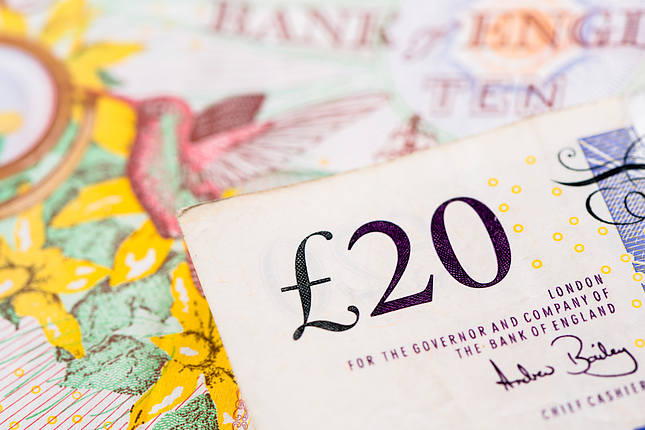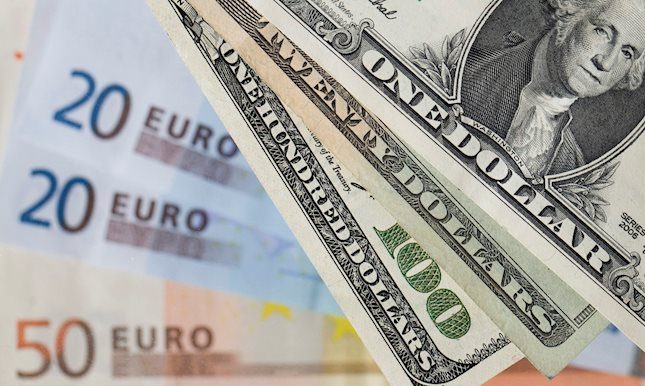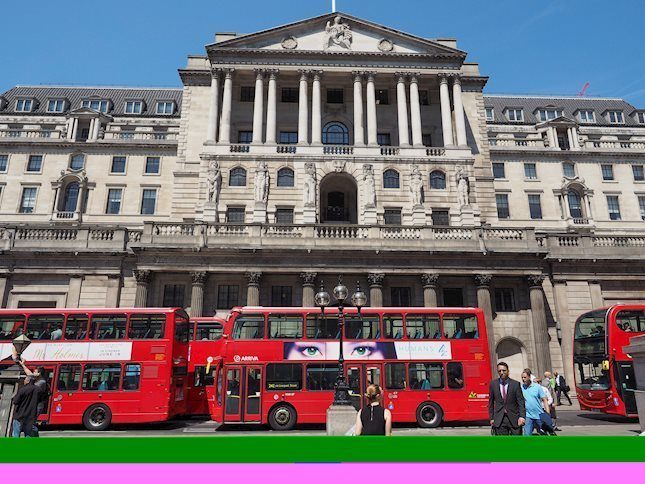- EUR/GBP remains under selling pressure around 0.8315 in Thursday’s early European session.
- The UK central bank is likely to cut the benchmark rate by 25 bps at its November meeting on Thursday.
- German Industrial Production came in at -2.5% MoM in September vs. -1.0% expected.
The EUR/GBP cross extends its downside to near 0.8315 on Tuesday during the early European session. The Bank of England (BoE) interest rate decision will be in the spotlight on Thursday.
The BoE is widely expected to cut interest rates on Thursday, bringing the benchmark rate to 4.75% from 5.0%. Political developments will influence the central bank's decision on Thursday, particularly last week's Budget given by Chancellor Rachel Reeves. The UK officials stated that they would push inflation and interest rates higher in the short term, triggering more doubt about whether the UK central bank will cut interest rates again following its meeting in December.
The expectation that the BoE would cut rates less aggressively than the European Central Bank (ECB) could provide some support to the Pound Sterling (GBP) and cap the upside for the cross in the near term.
The ECB has already reduced rates three times this year as inflation risks in the Eurozone ease faster than expected. The rising ECB rate cut bets exert some selling pressure on the shared currency. Money markets see the ECB cut rates by around 125 basis points (bps) over the next year.
Data released by Destatis on Thursday showed that Germany’s industrial sector activity declined by 2.5% MoM in September versus a rise of 2.6% (revised from 2.9%) in August, weaker than the estimation of 1.0% decline. The Euro remains weak in an immediate reaction to the downbeat Industrial Production data.
BoE FAQs
The Bank of England (BoE) decides monetary policy for the United Kingdom. Its primary goal is to achieve ‘price stability’, or a steady inflation rate of 2%. Its tool for achieving this is via the adjustment of base lending rates. The BoE sets the rate at which it lends to commercial banks and banks lend to each other, determining the level of interest rates in the economy overall. This also impacts the value of the Pound Sterling (GBP).
When inflation is above the Bank of England’s target it responds by raising interest rates, making it more expensive for people and businesses to access credit. This is positive for the Pound Sterling because higher interest rates make the UK a more attractive place for global investors to park their money. When inflation falls below target, it is a sign economic growth is slowing, and the BoE will consider lowering interest rates to cheapen credit in the hope businesses will borrow to invest in growth-generating projects – a negative for the Pound Sterling.
In extreme situations, the Bank of England can enact a policy called Quantitative Easing (QE). QE is the process by which the BoE substantially increases the flow of credit in a stuck financial system. QE is a last resort policy when lowering interest rates will not achieve the necessary result. The process of QE involves the BoE printing money to buy assets – usually government or AAA-rated corporate bonds – from banks and other financial institutions. QE usually results in a weaker Pound Sterling.
Quantitative tightening (QT) is the reverse of QE, enacted when the economy is strengthening and inflation starts rising. Whilst in QE the Bank of England (BoE) purchases government and corporate bonds from financial institutions to encourage them to lend; in QT, the BoE stops buying more bonds, and stops reinvesting the principal maturing on the bonds it already holds. It is usually positive for the Pound Sterling.
Information on these pages contains forward-looking statements that involve risks and uncertainties. Markets and instruments profiled on this page are for informational purposes only and should not in any way come across as a recommendation to buy or sell in these assets. You should do your own thorough research before making any investment decisions. FXStreet does not in any way guarantee that this information is free from mistakes, errors, or material misstatements. It also does not guarantee that this information is of a timely nature. Investing in Open Markets involves a great deal of risk, including the loss of all or a portion of your investment, as well as emotional distress. All risks, losses and costs associated with investing, including total loss of principal, are your responsibility. The views and opinions expressed in this article are those of the authors and do not necessarily reflect the official policy or position of FXStreet nor its advertisers. The author will not be held responsible for information that is found at the end of links posted on this page.
If not otherwise explicitly mentioned in the body of the article, at the time of writing, the author has no position in any stock mentioned in this article and no business relationship with any company mentioned. The author has not received compensation for writing this article, other than from FXStreet.
FXStreet and the author do not provide personalized recommendations. The author makes no representations as to the accuracy, completeness, or suitability of this information. FXStreet and the author will not be liable for any errors, omissions or any losses, injuries or damages arising from this information and its display or use. Errors and omissions excepted.
The author and FXStreet are not registered investment advisors and nothing in this article is intended to be investment advice.
Recommended content
Editors’ Picks

GBP/USD holds recovery gains above 1.2900 ahead of BoE policy decision
GBP/USD builds its recovery momentum above 1.2900 in European trading on Thursday, moving away from its lowest level since mid-August. Traders adjust their positions ahead of the key BoE and Fed monetary policy announcements.

EUR/USD stays firm near 1.0750 amid US Dollar pullback
EUR/USD holds higher ground near 1.0750 in the European session on Thursday. The pair finds support from a broad US Dollar retreat, as traders unwind their Trunp win-inspired USD longs ahead of all-important Fed policy announcements.

Gold price faces challenges due to decline in safe-haven flows, awaits Fed rate decision
Gold price (XAU/USD) faced challenges as the dollar-denominated precious metals struggled due to a stronger US Dollar (USD) following the victory of former President Donald Trump in the US election.

BoE set for a second interest rate cut this year on Thursday
Market consensus points to further easing by the Bank of England's (BoE) upcoming interest rate decision on Thursday. The BoE has held rates steady at 5.00% in the previous gathering, but shifting investor sentiment now suggests a possible 25-basis-point cut this week.

Trump wins: Tax cuts come with a cost
Donald Trump’s victory will ensure a lower tax environment that should boost sentiment and spending in the near term. However, promised tariffs, immigration controls and higher borrowing costs will increasingly become headwinds through his presidential term.

Best Forex Brokers with Low Spreads
VERIFIED Low spreads are crucial for reducing trading costs. Explore top Forex brokers offering competitive spreads and high leverage. Compare options for EUR/USD, GBP/USD, USD/JPY, and Gold.